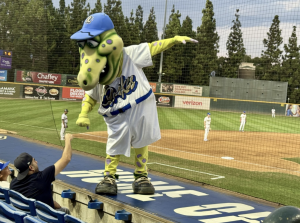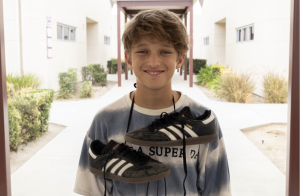Cancel Culture: A Realization
How has cancel culture affected the way we look at celebrities?
October 19, 2020
In today’s society, people are shunned for controversial thoughts and actions on social media. Even if these thoughts were shared as far back as 20 years ago, they could still face repercussions. It could be as little as something posted on Twitter, or a comment in an old video. Anything can bring a spotlight in today’s social media-driven world. This is called cancel culture. The trend to cancel has become mainstream in modern culture, catching many celebrities in its web. Years from now, 2020 will be remembered as the year we were forced to stay home due to a global pandemic. This can only make one wonder, have quarantine restrictions brought a stronger spotlight on the actions of our celebrities?
Shutting down someone else’s opinions and putting them down over a difference of opinion may seem toxic. In other cases, it can bring about an invaluable apology.
Ellen Degeneres, a tv host known for encouraging kindness, was canceled in the public eye for allegations of staff maltreatment. Rumors of a racist and sexist environment swirled for years, but this time people have paid attention. The crew claims that one of the producers told her that he only knew the names of the white people who worked there, and another woman says another one of the producers sexually harassed her.
Justyne Zabala, a student at Day Creek Intermediate, said it’s good that Ellen is being canceled because it’s not right that she’s treating people badly. “It’s wrong,” Justyne said. “She thinks because she’s famous, she just rules over everybody.”
While Ellen has apologized, some of the staff members say it wasn’t enough and didn’t directly address the real issue.
Collectively, Shane Dawson and Jeffree Star are taking the heat together, but for very different reasons. Old Youtube videos of Dawson doing racist portrayals, sexualizing minors and animals, and making fun of people with disabilities have recently surfaced. Dawson has apologized, but he has been canceled indefinitely. Star has faced a similar fate over feuds and drama with other YouTubers and racist things said at a younger age, including posing for a website named “Lipstick Nazi,” and voicing a desire to pour battery acid on a black woman to match her foundation.
“I do not support them. I did, back then, before I knew. Especially Jeffree Star with his pallet, but then I heard what happened with everything going on with social media. I thought they were very disgusting,” said Harley M., an 8th grader at Day Creek Intermediate.
Shane Dawson and Jeffree Star made a pallet together, but with their cancellation, Target and Morphe have stopped selling their makeup. As a result, they’ve lost over a million youtube subscribers. Youtube went as far as demonetizing Shane’s videos, preventing him from earning revenues from ads. Dawson made an apology video, but it wasn’t enough to save him.
Another example is J.K. Rowling. Best known for her book series about a world of wizards and witches, Rowling recently released her fifth book under the pseudonym, Robert Galbraith. Troubled Blood is about a male serial killer who dresses up as a woman to commit crimes. This book has been accused of being against transgender women. Regardless of Rowling’s personal history with feminism, many people disagree with the book and have called it transphobic.
“I’ve always thought of Harry Potter as a book where a boy is different. And he goes to a place where they celebrate their differences. And now she’s written a book that says being different is bad,” said Johnny Opp, a 7th grader at Day Creek Intermediate.
While some may be worthy of disdain, cancel culture runs the risk of preventing open discussion and conversation. By inviting other people’s points of view, maybe there’s a middle ground that’s reachable for the opposing sides.
As cancel culture has become more popular, more celebrities are being canceled. This can be a learning experience. Celebrities need to understand that their actions have consequences, while civilians need to learn to not idolize celebrities. No one really knows what the personal life of a celebrity is; we only know the image they present through the media. If it’s something controversial and their views have evolved, they should be able to apologize and move on. But if they don’t apologize and still have those views we need to dialogue to see their side of it. We have to value the benefit of opinion and our freedom of speech, even if we don’t agree with one another. Conversation is essential if we’re going to move forward and see progress in such trying times.






